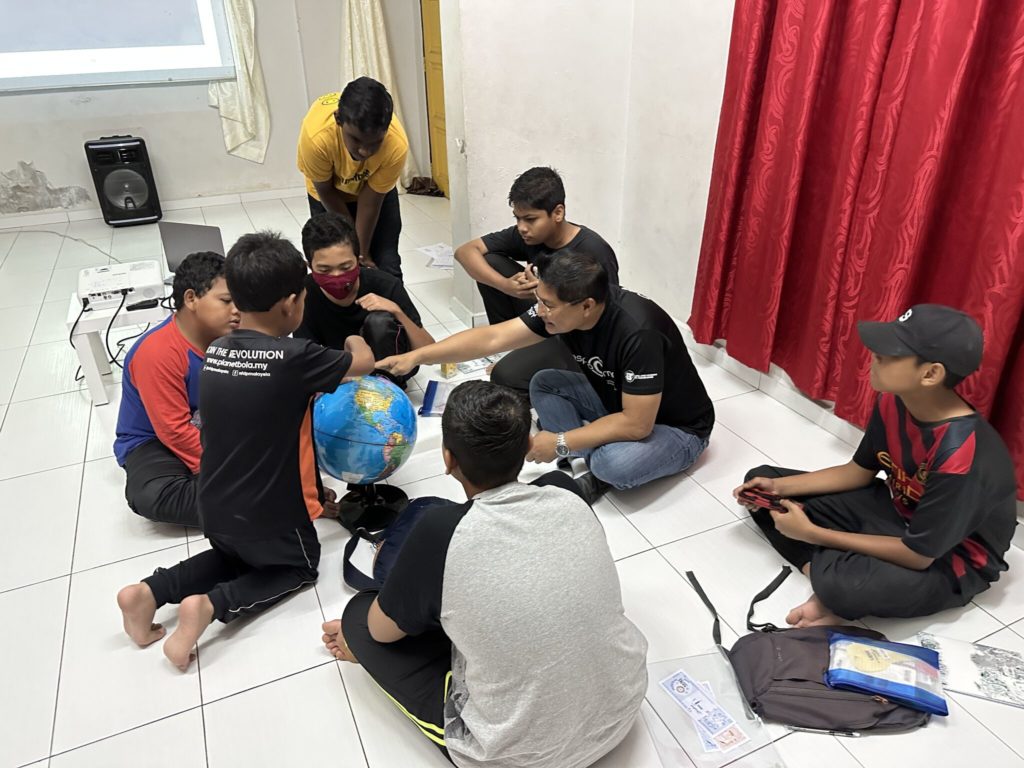By Rashid Mat

I often feel that many of our young people today only need one person to believe in them and to give them the opportunity to accomplish something that they had never thought that they could do.
Based on my experience as a social entrepreneur working with young people from underserved communities, I find that many young people often lack proper guidance and opportunities. In addition, they’re overwhelmed with fear and self-doubt to move into action.
Similarly with adults, at times we allow our fears to overcome us. And we feel relatively small to take action and achieve success, be it at work or in business.
These young people, whether they are talented in sports such as football or in art or academic pursuits, need guidance and support to help empower them to fully recognise their capabilities, self-determination and self-worth. Students need to learn to appreciate and understand that progress is achievement and small progress are not failures.
One significant finding which I uncovered over the years is that many of our young from secondary schools are unaware of their strengths and weaknesses and purpose in life. For example, what’s the purpose for them to go to school every day? What’s the purpose of studying languages, namely English or Malay, or even Mathematics? They often have no inkling. They feel that education is somewhat irrelevant to them.
We see this huge gap in our education system. That’s why over the years, I’ve been working closely with schools and the private sector to help empower young people, in both rural and urban communities. I help them to have that growth mindset and 21st century skills to prepare them to be changemakers, creative communicators, future-ready leaders, independent lifelong learners and be resilient enough to have a brighter future ahead so that their communities have a better livelihood.
Available statistics show that the number of jobless graduates is staggering. And we see many private sector companies investing in human capital programmes that include re-training so that graduates can unleash their true potential and secure jobs.
So, why not start empowering students from the secondary school level and build their self-confidence, self-control, self-discipline and self-motivation?
Many secondary schools in Malaysia are facing challenges for some of their students to attain decent levels of education that will enable them to fend for themselves after they leave school. Records show many students face challenges such as lack of motivation to study, attend school or pursue their studies at the tertiary level amidst a rise in mental health and social issues.
The trend of students opting not to pursue further studies beyond Form 5 has garnered significant attention. According to one survey, nearly 50% of Form 5 students are choosing alternative paths instead of continuing their education at the tertiary level.
In my interactions with participants in our organisation’s education programmes, I try to understand the underlying reasons behind this trend. It’s disconcerting to discover that students, some as young as 13 years old, have already firmly decided against furthering their studies.
Upon our deeper investigation, we identified parental issues as one of the factors that had influenced these decisions. The role of parents in shaping their children’s educational choices is a crucial aspect that cannot be overlooked.
Given these findings, it therefore becomes imperative for us to redouble our efforts to provide the necessary support to these young people. Our goal is to empower them to become lifelong learners, irrespective of their initial decisions.
We train young people using the growth model to instill a growth mindset to ensure they are open-minded to learn new things and gain new experiences relevant to them so that they can easily apply it in their daily lives in school and at home.
We all have a role to play in this. So, let’s work together to help tackle the rise in school dropouts and youth unemployment by focusing on building the character of secondary school students.
Rashid Mat is an experienced trainer and social entrepreneur at InspiraComm, an organisation aiming to change mindsets and lives for the better.
WE